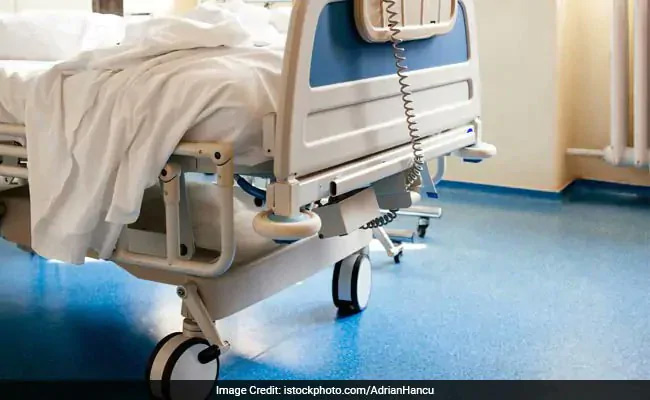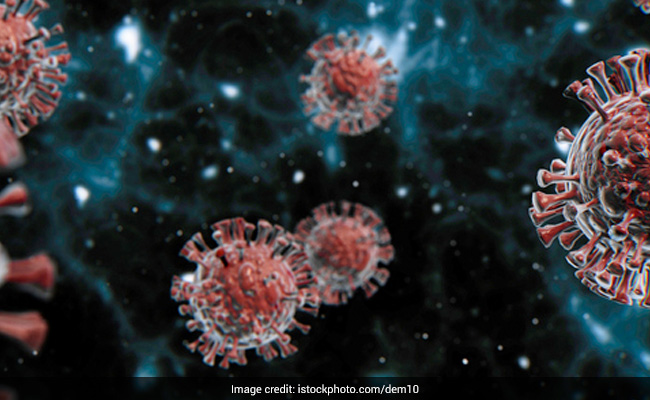5 years ago
New Delhi Television Limited (NDTV) in partnership with Google has initiated the #VaccinateIndia campaign. The aim of the campaign is to empower people with the right information about vaccines, their safety and efficacy. It will also provide reliable platform for COVID-19 content on symptoms, treatment, how to register and where to get vaccinated, and track up-to-date guidelines and protocols issued by the government and other international organisations and experts.
Here are the highlights of the #VaccinateIndia telethon:
We leave you with some of the highlights from the #VaccinateIndia telethon
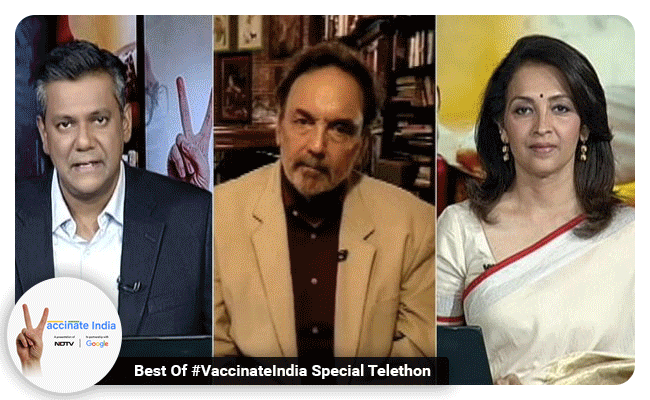
Do your bit and get vaccinated

Vaccine will protect you and make you well-equipped to fight COVID-19, say doctors as they urge people to inoculate themselves
Gurugram's Ambience Mall in conjunction with a district administration and NGOs has organised a COVID vaccination camp for people with special needs
#VaccinateIndia: Vaccine beneficiaries urge fellow citizens to get vaccinated
Actor Arjun Kapoor joins the #VaccinateIndia telethon
Diabetes and COVID-19 are related because in India diabetes is high: Dr Ambrish Mithal, Chairman and Head of Endocrinology and Diabetes at Max Healthcare- Pan-Max, Saket
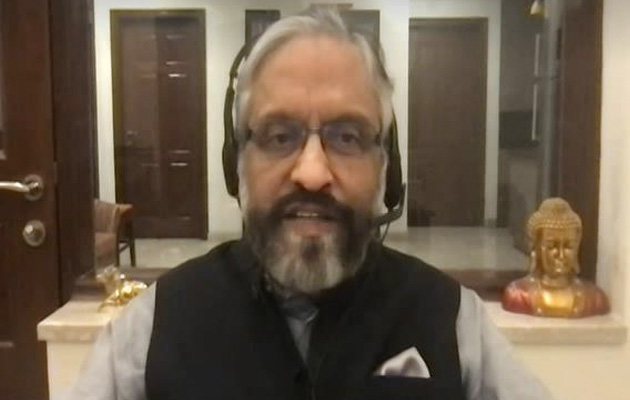

COVID-19 affects diabetic patients more which is why those people need to be more careful. If you have diabetes and you get COVID then there is a high chance of you needing ICU. Remember, all diabetes are not same. If you are young and have short diabetes and no other issue then COVID won't affect you much. The more comorbidities you have, the more severe will be the outcome. We have to take similar precautions - masking and physical distancing. Along with this, control your diabetes. Stay in touch with your doctor. If your blood sugar will be in control then there are less chances of you getting severe COVID-19.
A person with liver disease must get the vaccine: Dr Arvinder Singh Soin, Chairman, Medanta Liver Transplant Institute, and Lead Investigator, Indian RCT on TCZ in COVID
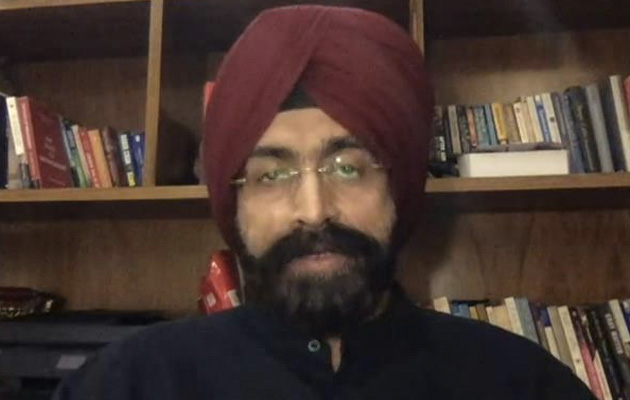

It's pretty clear that COVID-19 actually affects patients with liver disease much more than patients who do not have it. There are the same receptors in the liver as there are in lungs. If a person is normal with normal liver function then they will not be affected. The liver test might go up a bit. Nothing much will happen to them. If they already have liver disease, it can become severe. If they have severe disease, there is a 15-20% chance of dying. Patients who are waiting for a transplant, it is safer to go for it. A person with liver disease must get the vaccine because they are at a higher risk of contracting COVID-19.
Dr Naresh Trehan, Chairman, CII Healthcare Council, Chairman and Managing Director, Medanta - The Medicity joins #VaccinateIndia telethon
On #VaccinateIndia, Dr Sumit Ray, Head of Department, Critical Care Medicine, Holy Family Hospital clarified some of the common misconceptions about COVID-19 vaccines
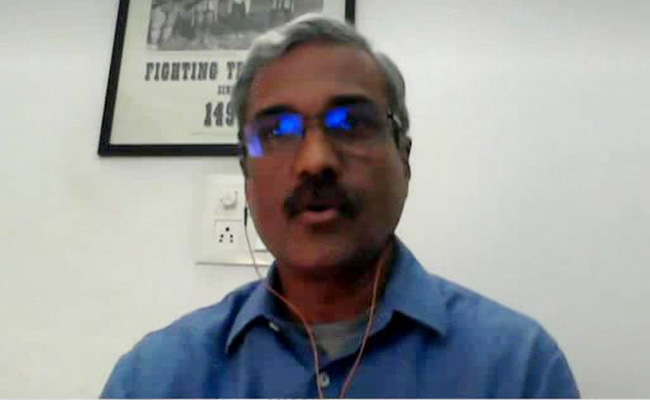

Steroids are necessary for a subset of people- patients who are on oxygen and ventilator. It is true for any medicine that it has to be given at the right time to the right patient. In COVID-19 initially there is a virus in the body and inflammatory response that the body puts up as a result.
If there is too much information without context, medicine has to be learned over a period of time. If that is not done then there is infodemic. Secondly, it has exposed our own doctors and communities' ability to analyse the data. In medicines, it has to have a context when we talk about medication.
Corporates can play a huge role in special times like these: Ravi Bhatnagar, Director External Affairs & Partnerships (South Asia), RB on #VaccinateIndia telethon
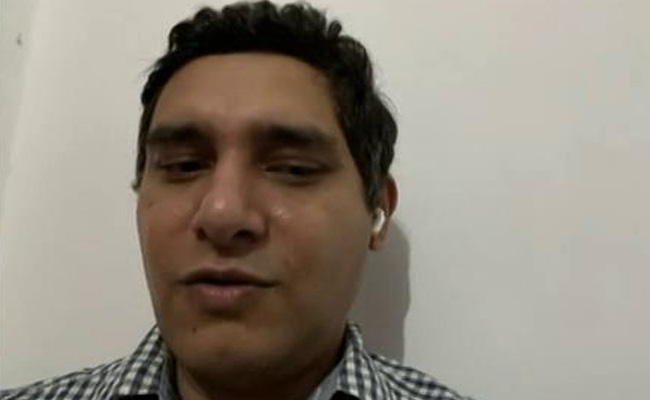

There is a huge role that corporate can play in special times like these. We have been doing work in other pandemics and epidemics in the past ranging from SARS, MERS, EBOLA. We reached out to 20 million kids across India through Dettol-NDTV collaboration. We have alternative channels to reach out the places. There needs to be behaviour change messaging in the community. We have been doing last mile work. We reached out to 50 per cent of the aspirational districts in India. We plan to cover more of the aspirational districts.
T.S. Singh Deo, Minister of Health, Chhattisgarh on how the state has been vaccinating its people
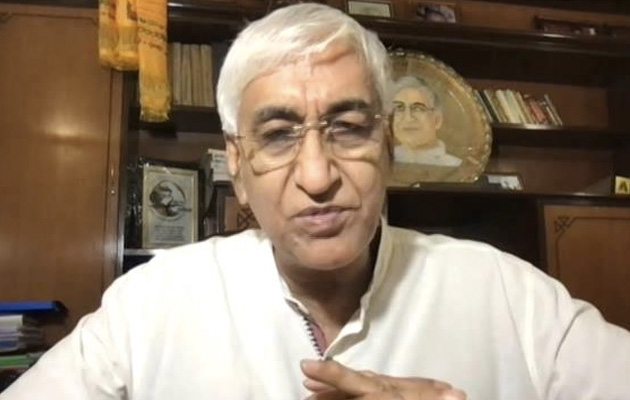

The protocol from the Government of India asked us to identify and mark vaccination centres. How a vaccine goes from central storage to sub-godowns. We have 20,000 villages. The staff was trained, people for registation, administering vaccines were trained. In this process, over 7,000 people were trained for giving vaccine. We have given 3.26 lakh vaccines in a day. We can administer 3-3.5 lakh vaccines every day.
The world is not nearly vaccinated enough that we have enough protection: Eric Feigl-Ding, Senior Fellow, Federation of American Scientists
Dr Suneela Garg, Director Professor and Head, Community Medicine – MAMC, Member, The Lancet COVID-19 Commission on #VaccinateIndia telethon
COVID-19 spread in India the worst when compared to the surges seen globally
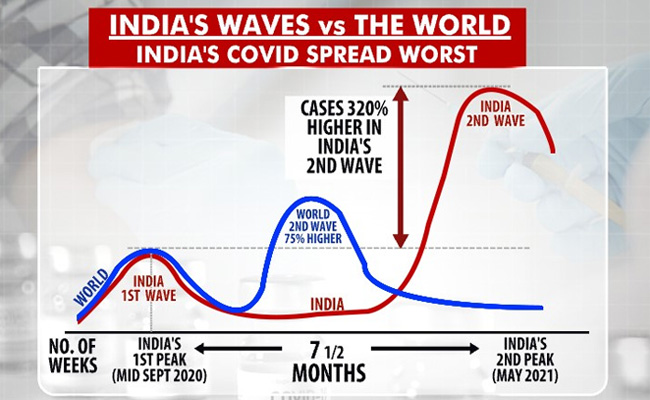

How many people will have immunity by end-2021?
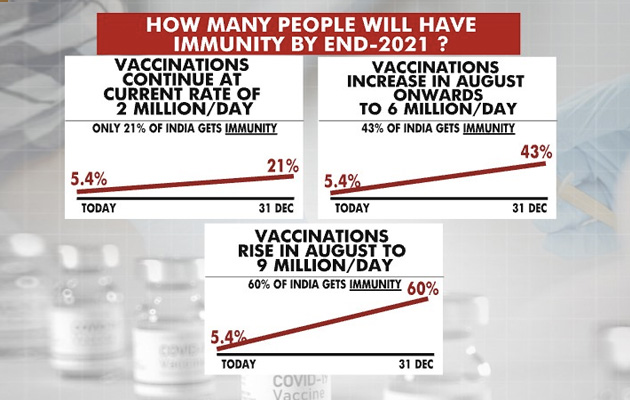

It is very imperative to build confidence among people: Dr Mathew Varghese, Head of Orthopaedics, St Stephens Hospital and Public Health Expert
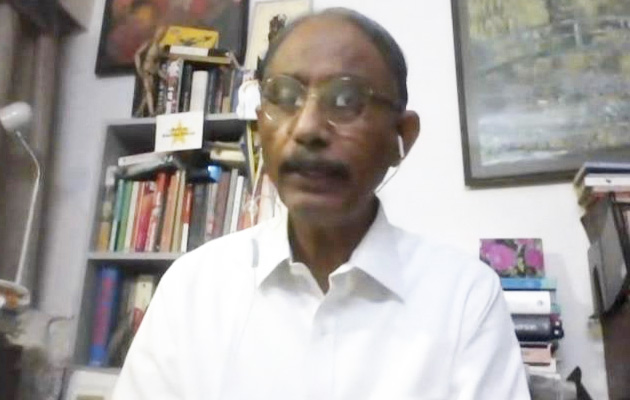

To build confidence among people towards vaccines, we have to put pros and cons and how they have been built and rolled out and other such information in public. This is the only way people will have trust in vaccination and it is important to be transparent to people.
RS Sharma, CEO, National Health Authority and CoWin Chief talks about how the CoWin platform is helping in the fight against COVID-19
It is probably nothing more important now than vaccination: Dr Prannoy Roy
COVID waves: Get worse and worse
COVID waves: Get worse and worse
We know users are looking for appropriate information: Anal Ghosh, Senior Program Manager, Google India explained how Google is making accurate information on COVID vaccine available on its platform
Dr Faheem Younus, Chief of Infectious Diseases, University of Maryland on the #VaccinateIndia telethon
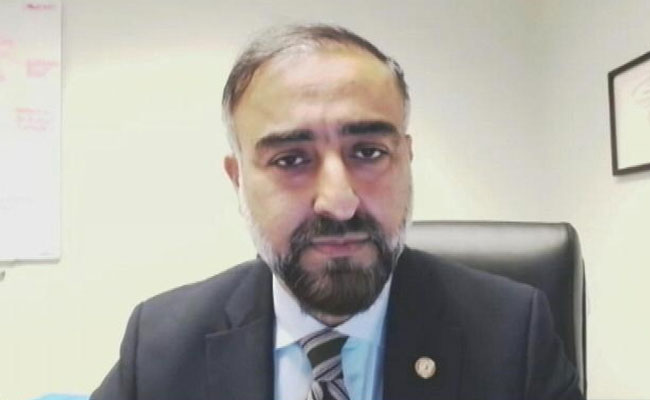

If you look at the United States where we started vaccinating in June and December, we were having about 4,000, 3000 deaths in a day and over a hundred thousand deaths in a month. Now the number is down to 15,000 a month, around 500 a day. And other than mass vaccination, I don't think much has changed in the United States. You see the same data from Israel. You see the same data in the UK. So the point here is that at least the m-RNA vaccines, Johnson and Johnson, AstraZeneca, the ones which have been used in these countries. We can say confidently that yes, these vaccines are game-changers.
NDTV reporters share their COVID-19 vaccination experience on #VaccinateIndia telethon
Medical workers, frontline warriors, everyone should take the vaccine: Dr Jalil Parkar, Senior Pulmonary Consultant, Lilavati Hospital


According to me, medical workers, frontline warriors, everyone should take the vaccine. We should try to take the vaccine to rural areas as well. We should have humanity and everyone - rich, poor, big, small - everyone should get the vaccine. Everyone should come together and work towards it. We need to save lives and help people. Health system is broken. If we don't do it now then when? Why are people not understanding this? People who can afford should go for paid vaccines so that poor people can get it for free. Everyone should get the vaccine.
Raghu Sharma, Minister of Health and Family Welfare, Rajasthan joins #VaccinateIndia telethon
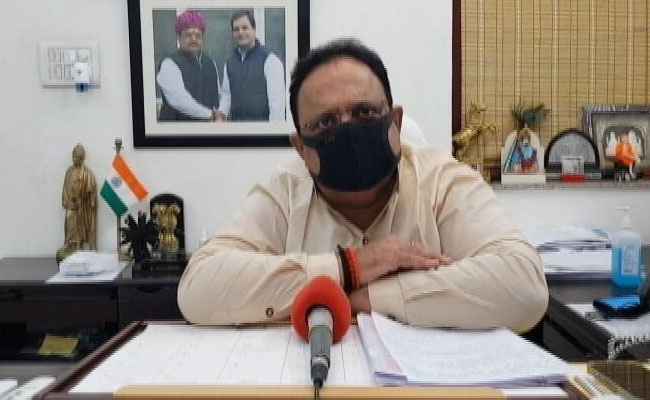

Rajasthan is the largest state in the whole country from the geographical point of view. We have a desert here, a tribal region where every single house lives on a hill. So, it's a very big challenge to vaccinate 8 crore people of Rajasthan. We started preparations in October itself. We prepared for 3.5 months - October, November, December and till January 16 - to train manpower, to build storage centres, to develop cold chain points and other preparations. The vaccination began on January 16. The big thing is that we built three storage centres in the capital Jaipur. There we can store bumper stock. We have seven divisions where we have developed storage capacity. And there are 34 medical districts and we have developed storage capacity in each district. We have also developed 2,444 cold chain points. Each district headquarter has one mobile van for the transportation of vials to CSC, PSC, SDH - vaccination sites. We have trained 54,000 ASHA workers, 56,000 anganwadi workers and 2400 ANM. Before COVID-19, CM had started Nirogi Rajasthan for preventive care under which we created Swasthya Mitra. Under that, we selected 2 volunteers each in our 40,000 revenue villages. So, we had that manpower as well. There was also some education department personnel; we trained all of them in 3.5 months.
I think everyone should take the vaccine especially at a time when we are talking about the third and fourth wave. And COVID-positive people have to face long-term complications. vaccine is importnat. The vaccine doesn't have any after-effects. I have taken it. CM has taken it and a lot of other people have taken it. There should be no hesitancy.
Dr Randeep Guleria, Director, AIIMS said on the #VaccinateIndia telethon that India needs to develop a multi-pronged vaccination strategy
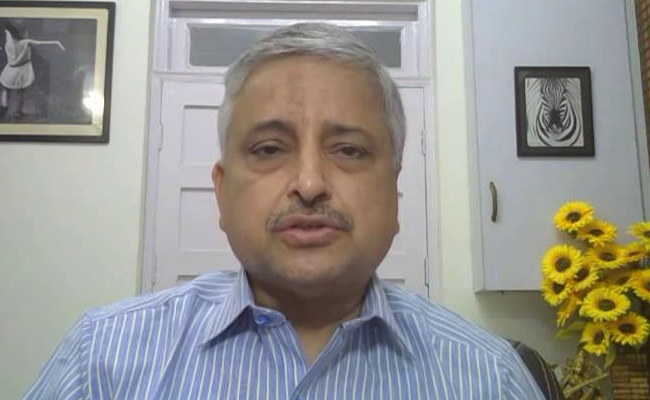

Vaccination is one of the most important weapons that we have in the fight against COVID-19. It will pay dividends in long run. Along with this, COVID appropriate behaviour is needed. We need to focus first on high-risk group such as senior citizens, comorbid people. Over a period of time, when we have enough doses then try and vaccinate as many people as possible.
The most important thing is to touch 10 million doses a day and for that everyone - government and manufacturers need to come together. We have to look at how to support manufacturers with resources and funding so that they can quickly ramp up production and provide more doses.
More data is being collected on Covaxin and Sputnik vaccines from the manufacturers and the due process is being followed for clearance and hopefully will be completed in six to eight weeks: Soumya Swaminathan, Chief Scientist, WHO
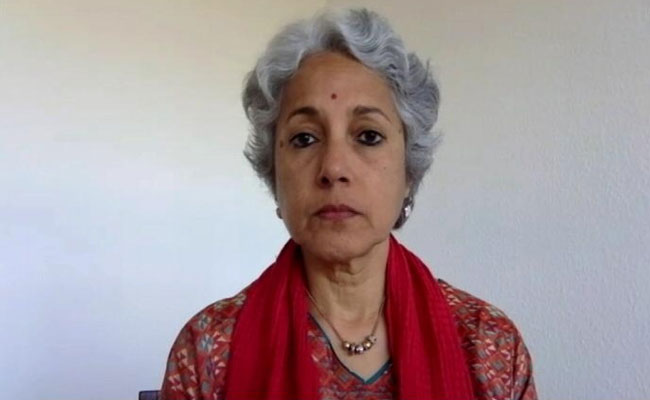

The science is evolving and there is not a lot of data out there. There are some lab experiments where you take the virus and expose it to see inhibitions. Some variants need higher level of antibodies to neutralise. Clinical studies and effectiveness studies that come out are helpful. Analysis of that data is what will give us a better picture. What I would say is that it stimulates enough immunity to fight severe disease leading to hospitalization.
If we want to bring this infection down to extremely low levels then there maybe a state where we would want to vaccinate children. However, because there is a clear link between age and comorbidities and severity of the disease we need to focus on the vulnerable group first.
Without vaccination, we would have 1 million cases a day: Dr Prannoy Roy
What is really worrying is that the next wave tends to be much worse than the previous wave: Dr Prannoy Roy
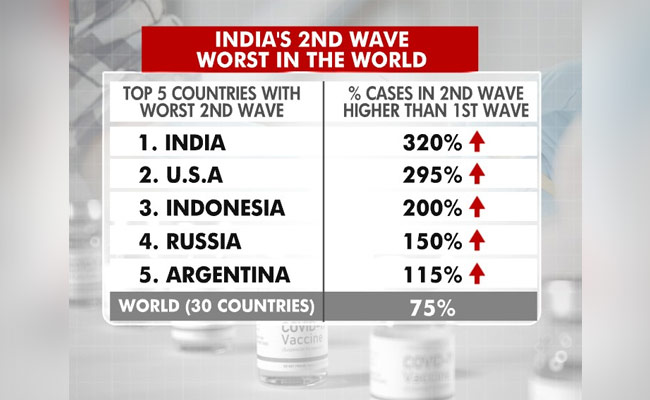

"Vaccinate, Vaccinate, Vaccinate," says Dr Prannoy Roy
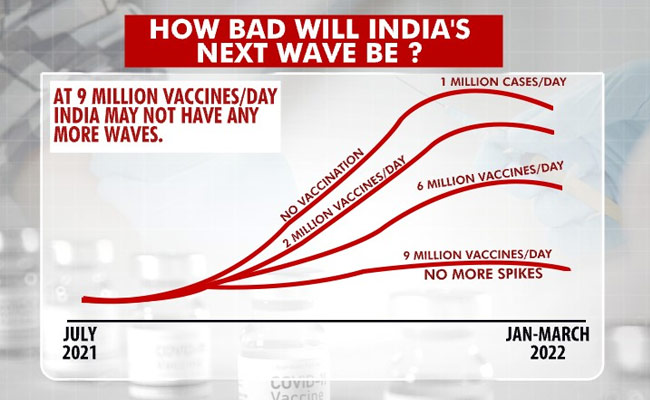

How many people in India now have immunity
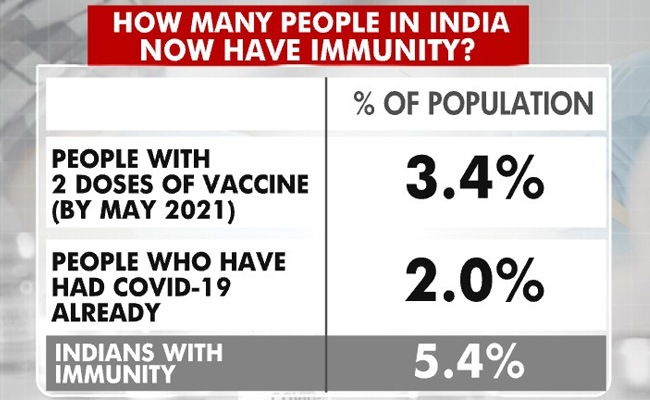

COVID-19 waves are getting worse and worse across the world: Dr Prannoy Roy
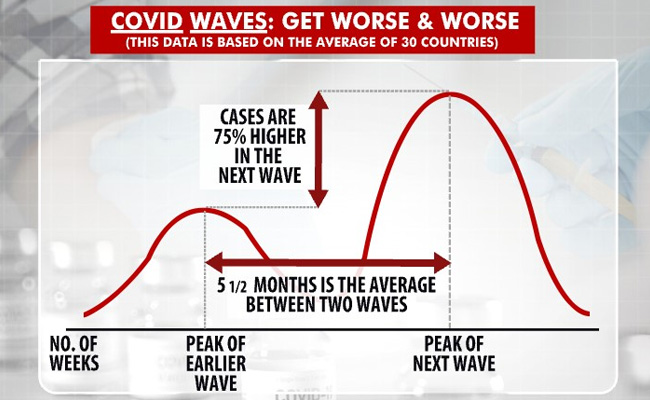

We looked at the data from 30 top countries. Between the two waves, there is a gap of 5.5 months from the peak of one wave to another. The key worry is the next wave is always much worse than the previous wave. on average, it is 75 per cent higher in terms of the number of cases in a country.
#VaccinateIndia Telethon Gets Underway
The stage is set for the #VaccinateIndia telethon
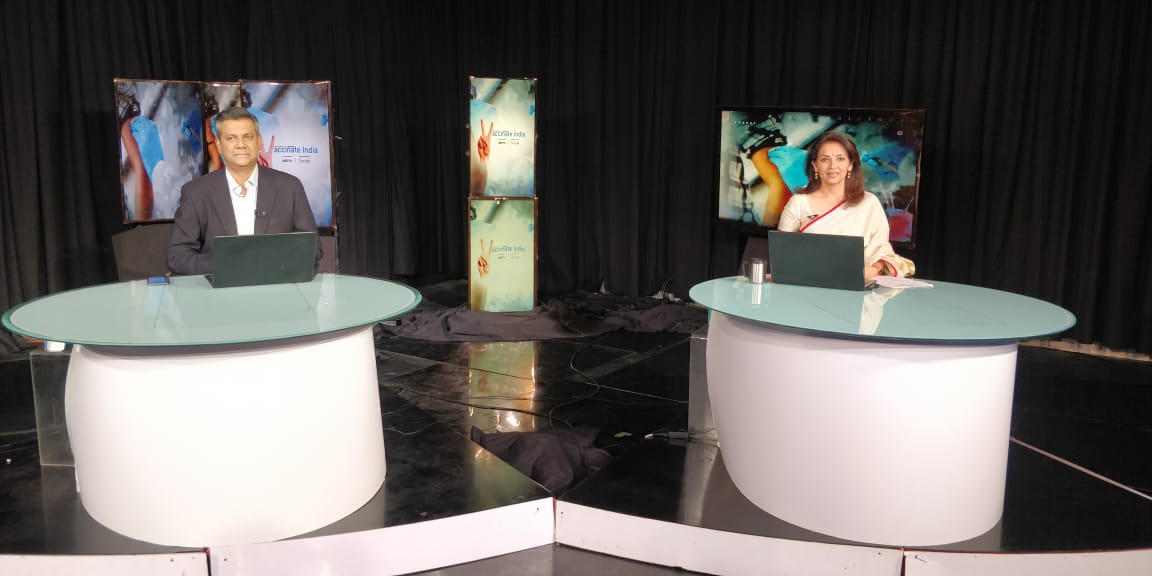

#VaccinateIndia: The only way to beat this enemy called COVID-19 is to be vaccinated, says NDTV’s Dr Prannoy Roy
Less than one hour to go for #VaccinateIndia telethon
Tune in for the telethon at 7PM (IST)
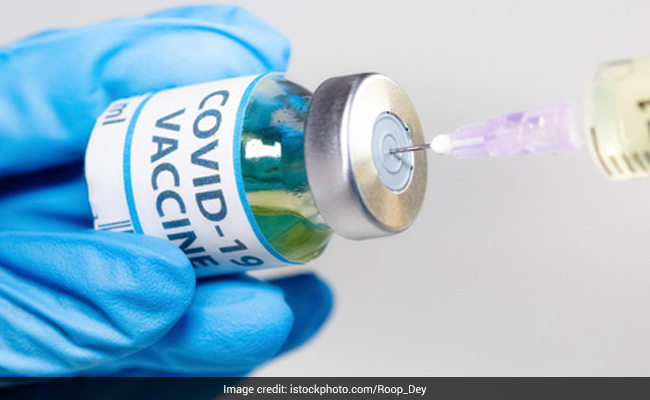

NDTV in partnership with Google launches the #VaccinateIndia campaign, which aims to inform people about the importance of getting vaccinated to fight against COVID-19
Watch a special telethon 7PM (IST) onwards
India started the immunisation drive against COVID-19 on January 16. The country has given regulatory approval to three vaccines-
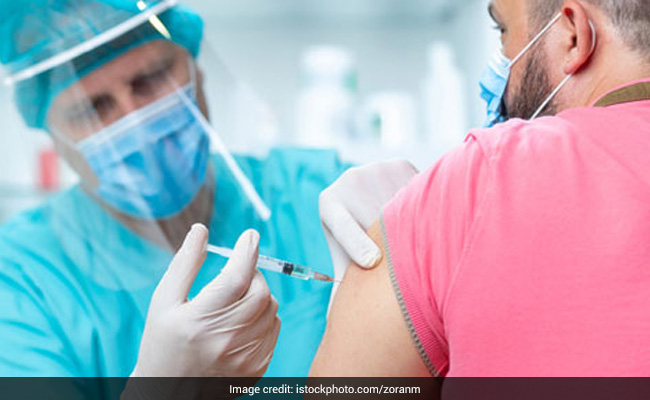
Covishield: Developed by Oxford-AstraZeneca, manufactured locally by Serum Institute of India
Covaxin: Developed by Bharat Biotech with Indian Council of Medical Research
Sputnik V: Developed by Gamaleya Research Institute of Epidemiology and Microbiology, Russia

Vaccines, along with other preventive measures like wearing masks, maintaining physical distancing, washing hands frequently can break the chain of transmission of the infection and thus help in defeating the pandemic soon.
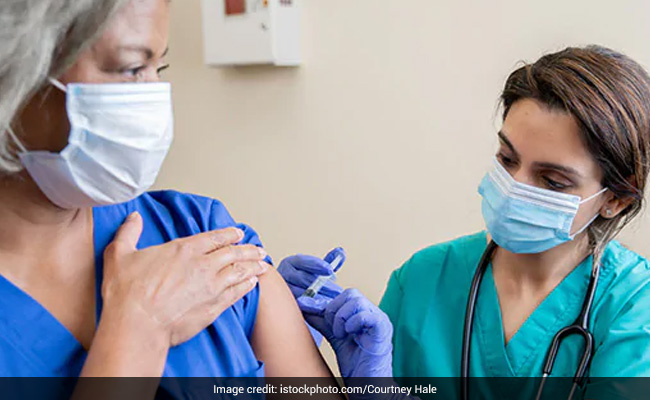

According to experts, COVID-19 vaccines can protect us from developing severe disease and can also reduce mortality.
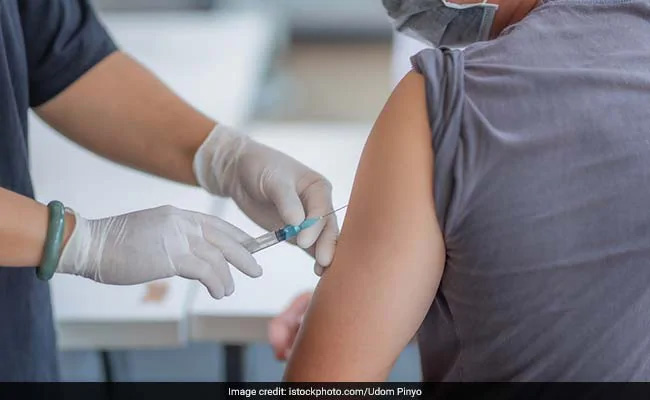

Devastating Second Wave Of COVID-19 Pandemic
The second wave of COVID-19 pandemic that started earlier this year, is proving to be ever more dangerous. With more hospitalisation and deaths occurring in the current wave, scientists and doctors say that our best bet against the raging pandemic is to get vaccinated.
